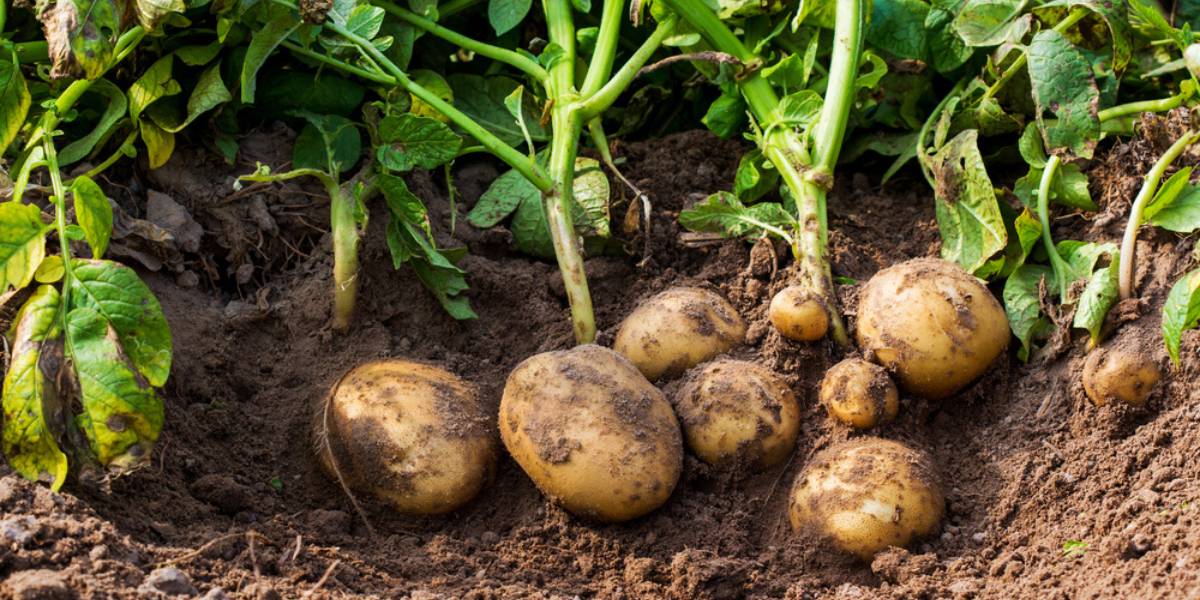Caring for potatoes involves providing the right conditions for growth and protecting the plants from common issues.
Here are some essential care tips for potatoes:
- Sunlight and Soil: Potatoes require at least six to eight hours of sunlight daily. Plant them in well-draining, loose, and fertile soil with a pH between 5.8 and 6.5. Avoid waterlogged or compacted soil, which can hinder tuber development.
- Watering: Ensure consistent soil moisture to encourage healthy tuber development. Provide about 1 to 2 inches of water per week, adjusting based on rainfall and temperature. Water deeply but infrequently to encourage strong root growth.
- Hilling and Mulching: Regularly hill soil around the base of potato plants to encourage tuber development and protect developing tubers from exposure to sunlight, which can turn them green and toxic. Mulch around the plants to retain soil moisture and suppress weed growth.
- Fertilization: Before planting, incorporate well-rotted compost or aged manure into the soil. Consider applying a balanced fertilizer with a higher potassium content to encourage tuber development. Avoid excessive nitrogen, which can lead to excessive foliage growth at the expense of tubers.
- Pest and Disease Control: Monitor plants regularly for signs of pests and diseases, such as potato beetles, aphids, or late blight. Employ organic pest control methods when possible and promptly remove any infected plants to prevent the spread of disease.
- Harvesting: Potatoes can be harvested once the plants have flowered and the foliage begins to turn yellow and die back. Gently dig up the tubers, being careful not to damage them. Allow the potatoes to cure for a few days in a cool, dark, and well-ventilated place before storing them in a cool, dry location.
By following these care guidelines, you can ensure the successful growth and production of potatoes in your garden, allowing you to enjoy a bountiful harvest of this versatile and nutritious vegetable.




